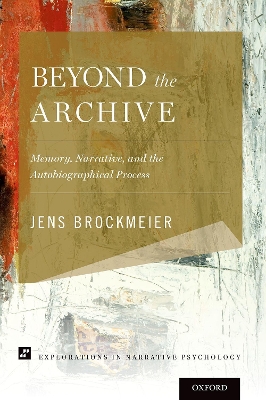Our longstanding view of memory and remembering is in the midst of a profound transformation. This transformation does not only affect our concept of memory or a particular idea of how we remember and forget; it is a wider cultural process. In order to understand it, one must step back and consider what is meant when we say memory. Brockmeier's far-ranging studies offer such a perspective, synthesizing understandings of remembering from the neurosciences, humanities, social studies, and in key works of autobiographical literature and life-writing. His conclusions force us to radically rethink our very notion of memory as an archive of the past, one that suggests the natural existence of a distinctive human capacity (or a set of neuronal systems) enabling us to "encode," "store," and "recall" past experiences.
Now, propelled by new scientific insights and digital technologies, a new picture is emerging. It shows that there are many cultural forms of remembering and forgetting, embedded in a broad spectrum of human activities and artifacts. This picture is more complex than any notion of memory as storage of the past would allow. Indeed it comes with a number of alternatives to the archival memory, one of which Brockmeier describes as the narrative approach. The narrative approach not only permits us to explore the storied weave of our most personal form of remembering--that is, the autobiographical--it also sheds new light on the interrelations among memory, self, and culture.
- ISBN10 0190913622
- ISBN13 9780190913625
- Publish Date 20 September 2018 (first published 24 September 2015)
- Publish Status Active
- Publish Country US
- Imprint Oxford University Press Inc
- Format Paperback
- Pages 424
- Language English
